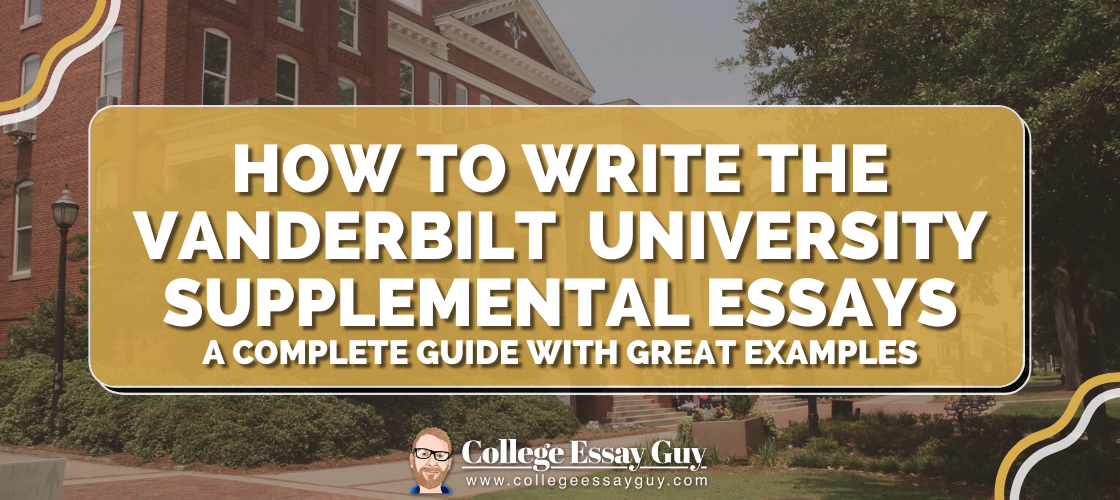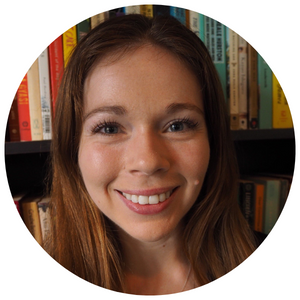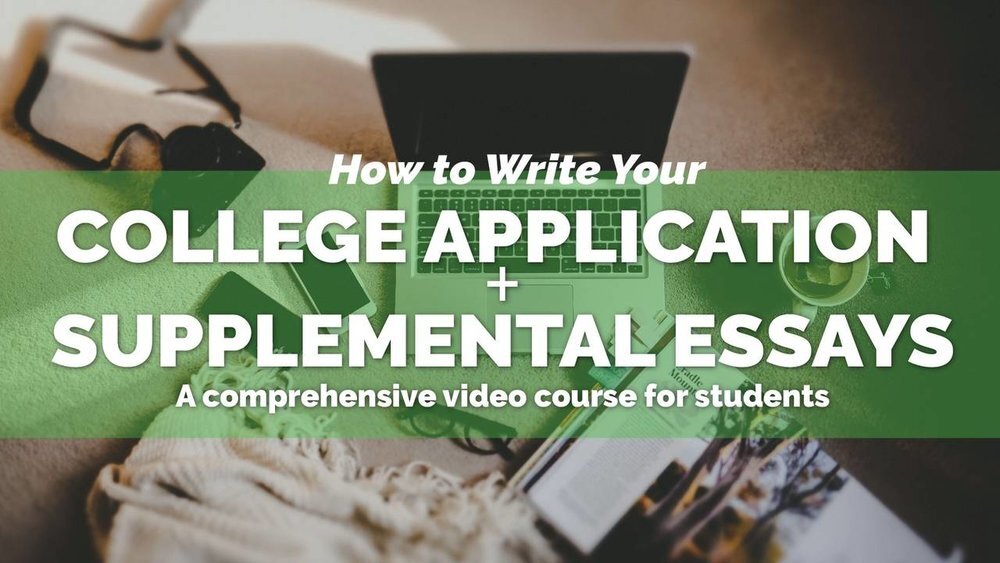Vanderbilt University cares about its students, and they must be doing something right—they are ranked #2 on The Princeton Review’s home to the happiest college students! Perhaps it’s their emphasis on creating community through residential colleges or their opportunities for diverse learning via cross-disciplinary research. Or, maybe, it’s because students in their first year get to storm the football field during the first home game! Regardless, Vanderbilt’s happy students form a diverse community, and through these supplemental essays, Vanderbilt is looking to learn about your own uniqueness, and how you’ll add to that diverse community. So be bold and show Vanderbilt your curiosities, your communities, and your ways of working with a pool of diverse thinkers!
Want to get a better sense of what Vanderbilt is looking for?
You’ll find an extensive, by-the-numbers look at Vanderbilt’s offerings, from enrollment and tuition statistics to student life and financial aid information on its Common Data Set. For deep insights into how this private research university envisions its role and how it wants to grow and evolve, read its academic strategic plan for the next five years (it even has its own website!). Reading through this will give you a strong idea of what Vanderbilt values.
BUT, please don’t just copy and paste chunks of the plan into your essay because a) that’s plagiarism and it's basically an academic crime, and b) anyone could do that.
Think about this: What aspects of Vanderbilt’s plan speak to you? Does anything you read make you want to get in a time machine and skip the rest of high school so that you can “travel to Guatemala to repair medical equipment” or “write and produce a musical” as part of Vanderbilt’s commitment to Immersion Experiences? What resonates with you? Keep reading to find out how you can connect the dots.
What is the Vanderbilt supplemental essay prompt?
Prompt #1
Vanderbilt University’s motto, Crescere aude, is Latin for “dare to grow.” In your response, reflect on how one or more aspects of your identity, culture, or background has played a role in your personal growth, and how it will contribute to our campus community as you dare to grow at Vanderbilt. Please provide your response in approximately 250 words.
How to Write The Supplemental Essay Prompt for Vanderbilt
This is a pretty standard “How will you contribute…” prompt—for a full guide to those prompts (and other kinds of “diversity” prompts), head here. Here’s a shorter version:
In this essay prompt, Vanderbilt wants to understand how your life experiences have prepared you to contribute to their diverse student community. Let's break down the key components of the prompt to guide your approach.
Which of your life experiences have had the most impact on your personal development? This essay offers the opportunity to delve into specific experiences that have shaped your perspective on life, education, and more.
How will you contribute? Make sure your answer to this question is clear. How have these experiences positioned you to make an impact at Vanderbilt? What do you bring to the school and community (in ways that maybe others don’t)? While it doesn’t have to be truly unique, it’s great to aim in that direction: the best response will highlight a contribution that only you (or maybe you plus a few other applicants) would think to make.
Again, one important aspect with this prompt is its focus on your contribution to the Vanderbilt community.
Another detail to note is Vanderbilt’s encouragement to show where you come from—the people, places, and things that have shaped who you are today. This is your chance to connect your unique upbringing, in a very broad sense of the word, with what has helped make you unstoppable. So take it.
While there are many things outside of “community” that might fit this prompt, if you’re looking for a way to brainstorm ideas, that’s a good place to start. (Especially since “community” and “identity” tend to overlap a lot. But keep in mind that you’ll want to include some “how will you contribute” details in your essay—this isn’t just a “tell us about a community” prompt.)
For a full guide to “community” essays, head there.
Here’s how to brainstorm possible essays:
Step 1: Brainstorm (all about you).
Do the “If You Really, Really Knew Me” Exercise.
Step 2: Research the college (learn all about them).
Make a copy of the “Why us” Essay Chart 2.0, research the school you’re writing your essay for, and fill in the first two columns.
Once you’ve done these exercises, you’ll have a better sense of:
YOU: A bunch of different talents/skills/identities/qualities that you’ll bring to a college campus, and
THEM: A variety of programs/courses/clubs/affinity groups that your college offers.
Step 3: Connect you… to them (i.e., the college you’re applying to).
Make connections between what the school offers and what you’re interested in.
Here’s an example essay (written for MIT’s version of this prompt) with analysis:
Example:
“I don’t have a mommy – and no, I was not adopted.” This was an early attempt, (albeit from a five-year old’s perspective), to proudly explain to my classmates that I had two dads (yes they are gay!) and was conceived via invitro-fertilization. Looking back, this statement undoubtedly triggered several conversations around my classmates’ dinner tables. Years later, I learned how my simple declaration broadened many family’s perspectives.
I was raised as part of a community that proudly celebrates diversity and encourages change through personal interaction. My parents and I are not the kind to go to protests. While we greatly respect those loud voices, we find influencing others on a personal level can be a more effective way of instigating change. Throughout my formative years, being part of one-on-one personal interactions within a predominately heterosexual community allowed me to witness the dismantling of stereotypes one person at a time.
At MIT, I aspire to perform similar roles, broadening perspectives and strengthening the LGBTQ+ climate through personal relationships. By being open with my gender identity, having a great sense of humor, and embracing my peers and professors in thoughtful, relaxed one-on-one conversations, I hope to develop strong bonds founded in mutual respect. Just as MIT can be considered the home of science, MIT should be a home for the LGBTQ+ community. My dream is to form relationships that have a cascading effect at MIT through developing new champions and strengthening the climate for LGBTQ+ students, faculty, and staff. (247 words)
Tips & Analysis:
Share (a core part of) your world view. We’d recommend thinking about everything that Vanderbilt is getting elsewhere, through your personal statement, activities list, and additional info section. Then assess: what aren’t they seeing yet? Remember, your essays’ primary function is to help a reader see who you are, what you value, what you bring to their campus and community. This essay uses the prompt as an opportunity to share a core part of their growing up, and how that shaped their values (celebrating diversity, encouraging change, personal engagement)
Half for you, half for them. Give or take—it doesn’t have to be a perfect 50/50 split. But notice that about 60% of the word count here is used to share specific details and insight gained from the student’s background. Then, about 40% is used to connect to specific aspects of the college community that the student wants to engage with, and how they want to do so (using specific examples and verb phrases) in order to show how they’ll contribute to the school. Be sure you’re including a decent amount of word count that gets really specific with how whatever aspects of background/identity you’ve discussed in the first half will allow you to add to the lives, perspectives, and understanding of other students in the second half. (And for more on how to mostly show, but probably tell a little in college essays, head there.)
And here’s a nice example essay written for a similar prompt from Colgate University:
Aside from my inherent love for bagels, my Jewish background has led me to become more embedded in my community, joining Jewish activists and building a website on Holocaust education.
In the 1930s, 36 members of my family were lost to the Holocaust, and that fact has led me to carry on the memory of my ancestors through tradition—with my Bar Mitzvah—as well as with an educational lens—teaching others about the Holocaust and about specific stories of survivors.
Feeling disconnected from Jewish activism, I decided to become an educator on the Student Leadership Board of the Seattle-based Holocaust Center for Humanity last year. Each week, we met to discuss present-day instances of oppression and discrimination across the world, and finished the year by building a website to share the story of a Holocaust survivor.
Being on the board connected me to a network of other passionate Jewish activists, and helped me to channel the pride for my culture and ancestors into visual media that reaches many viewers. At Colgate, I hope to find myself surrounded not only by like-minded Jewish students, but by a diverse group of people with whom I can learn and make connections. (196 words)
Tips & Analysis
Highlight a core identity. In the example essay, the applicant highlights their Jewish heritage and the profound impact it has had on their life choices and commitments. This is a great way to approach this prompt—think of communities/identities that you claim, pick one that Vanderbilt isn’t seeing elsewhere, and show how that aspect of you + your experiences will allow you to contribute to the Vanderbilt community. Similarly, for the Vanderbilt prompt, ensure you shed light on the aspects of your background that have shaped your identity. This could be cultural, familial, or personal attributes that have molded you into the individual you are today.
Provide concrete examples of impact. Just as the sample essay vividly narrates the applicant's journey in Jewish activism, so you’ll want to offer specific instances that exemplify the impact your background has had on your decisions and pursuits. Whether through personal experiences, engagements, or projects, share specific moments where your background has led you to initiate meaningful actions. In short, show us.
Connect to the college's community. The sample essay could be stronger if the writer reflected even more on how they might continue to nurture their identity at Vanderbilt. How can you do that? Address how your background, values, and commitments align with Vanderbilt's vision and how you intend to extend these connections on campus to foster learning and shared growth. For example, perhaps you plan on joining (or creating?) relevant student clubs, volunteering at a local museum, or finding innovative ways to connect with students who share a similar background.
Emily (she/her) is a writer, instructor, and college specialist based in Wilmington. She received her BA in English and Communications from the University of Chapel Hill and her MFA from UNC Wilmington. She has taught writing at both the high school and college level, where she has helped students find their voices. Her personal writing appears across multiple literary journals. When she is not essay coaching or writing, she is boxing, surfing, or reclined by the water with a good book.
TRY OUT THE COLLEGE APPLICATION + SUPPLEMENTAL ESSAYS COURSE
Create amazing supplemental essays for the most selective schools, polish your activities list, and complete everything else with ease and joy. Learn more here.










